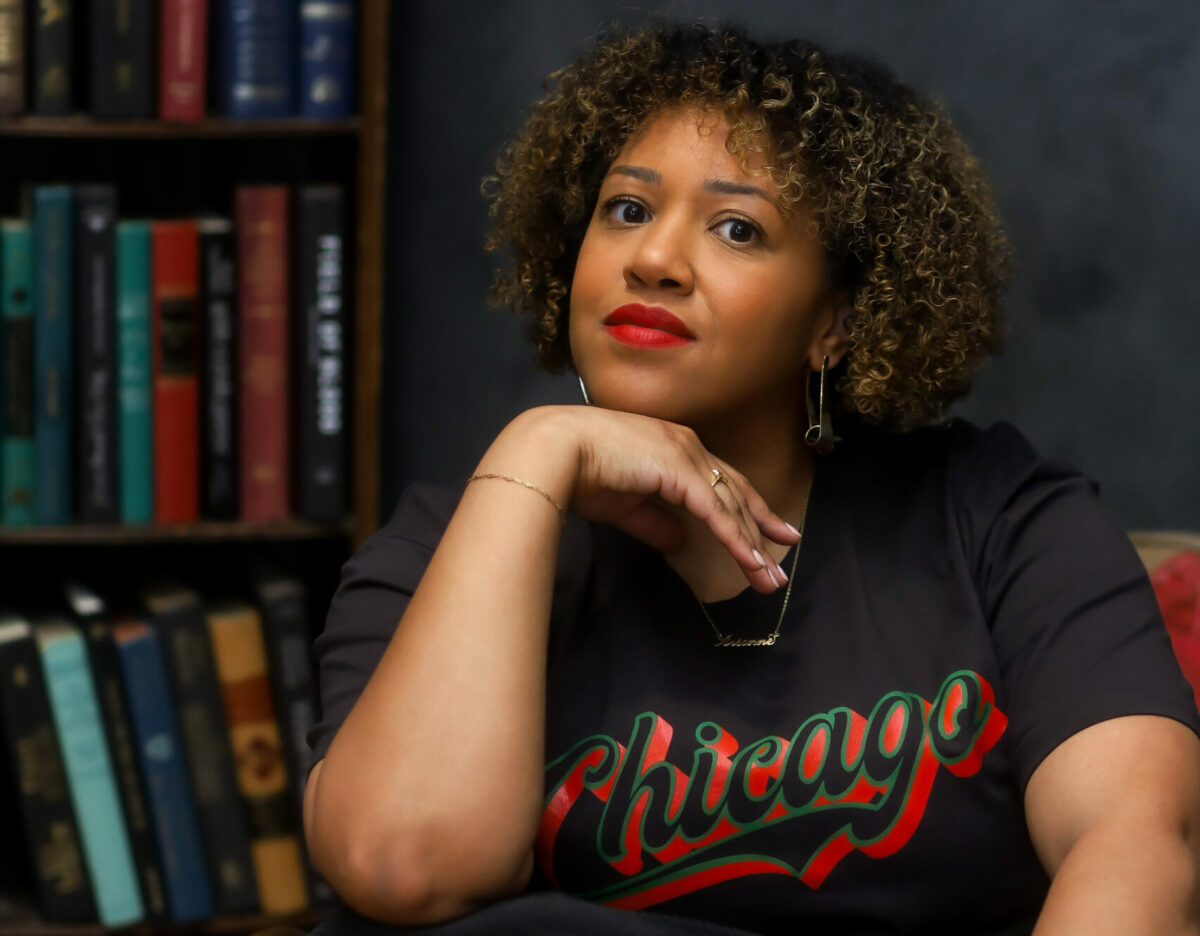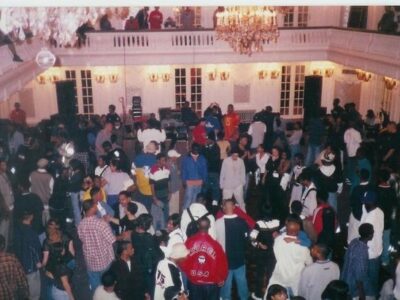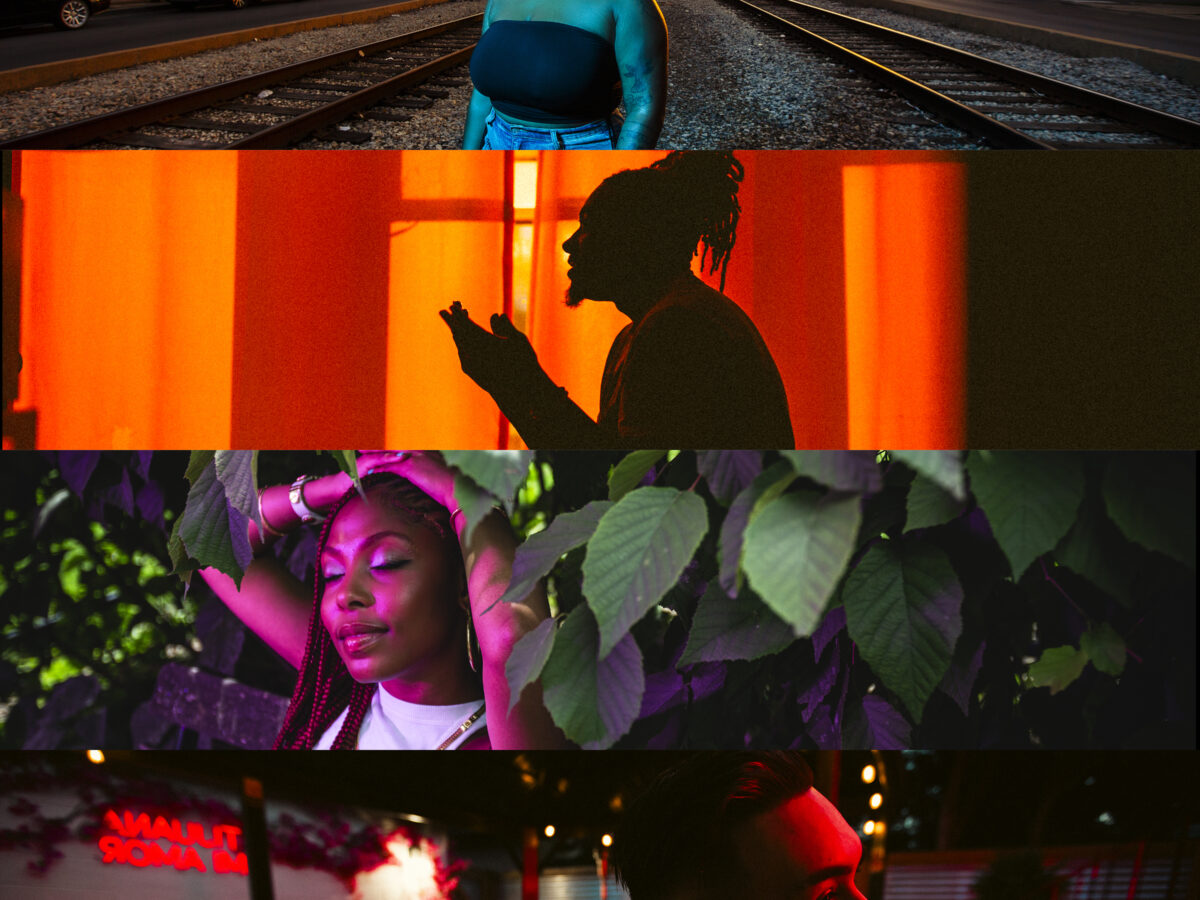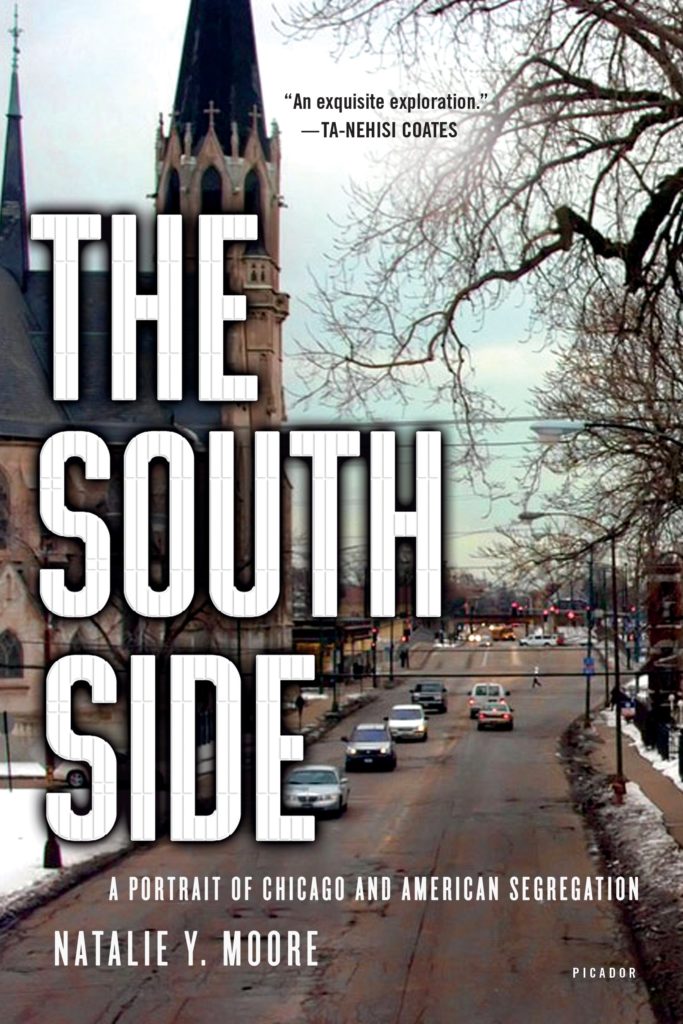Black culture is often duplicated, yet underappreciated and misunderstood by the dominant pop culture zeitgeist. At the same time, Black America is expected to have ample knowledge of what’s going on in white-dominated culture.
Englewood-born-and-bred journalist Arionne Nettles, a journalism lecturer at Northwestern University, has the receipts when it comes to what Black folks, particularly Black folks with Chicago roots, continue to offer the larger culture via her book, We Are The Culture: Black Chicago’s Influence on Everything (Lawrence Hill Books, April 2024).
If you’ve seen the gif where Golden State Warriors forward Draymond Green is gassing up his teammate Kevin Durant ahead of a game, that’s the feeling I believe Nettles’s book is giving Black Chicagoans far and wide.
Throughout We Are The Culture, Nettles sets a righteous sense of place where we as Black Chicagoans are constantly in conversation about where we’ve been, where we are, and, perhaps most importantly, where we’re going.
The history of the Black press is a constant throughout Nettles’s book. She discusses what it meant to her growing up. She talks about seeing her byline in Black publications as well as the trials and tribulations of being one of the few Black reporters in the places she worked. Nettles explores how the Black press often highlighted people and discussed talking points white media missed or ignored. All of this is prefaced by the music Nettles was listening to while writing the book; she names specific songs that hold a special place for her.
Ahead of our interview, I told Nettles that I’ve visited Kenwood’s Brooks Park to pay homage and to give thanks to Pulitzer Prize-winning poet Gwendolyn Brooks for seeing something in me I had no idea existed. Back in 1993 as an eighth-grader, I was one of the Illinois Poet Laureate contest winners. The Sun-Times wrote about my accomplishment. Decades later, I became an award-winning culture and entertainment reporter.
In those days, Brooks would personally call the winners and pay the prize money out of her own pocket. Nettles quipped, “Maybe you were the ‘harvest’ [Brooks] was thinking of.” Every now and again, my mother reminds me of who gave me my first writing award.
In the book, Nettles succinctly states what Black journalists are often subjected to in newsrooms, including and not limited to unpaid sensitivity reads—that’s when white reporters and editors ask Black journalists to read over stories to track any and all things that won’t enrage Black people.
During the summer of 2020 when so many tragic events took place amid the COVID-19 pandemic, Black journalists experienced being confronted by white editors with the “Are you going to be a journalist or an activist” riot act when covering protests that took place in the neighborhoods where many of them live. Nettles writes:
Today, Black journalists aren’t legally shut out of newsrooms, but that doesn’t mean it never feels that way. We are often underrepresented in the mainstream, our voices edited out of stories—if the stories we want to report even make it past the pitching stage. As Black journalists, our perspective is often seen as a hindrance to the obtuse idea of objectivity, with non-Black editors telling us we aren’t able to cover certain stories fairly—that is, until we are called on to be the unofficial (and unpaid) consultants to other journalists on Black life: Is this a term you’d say? Is this hair a dreadlock or dreads or locks? What does this tweet mean? We are good enough to be translators, sure, but in those same rooms, we often aren’t trusted to guide coverage and aren’t seen as good enough to be decision-makers. In many newsrooms, we are there for promises of diversity, and yet that diversity is just for show, to be able to check off a box on the next news survey that comes around to show their “commitment” to inclusion.
Nettles sat down with the Weekly to discuss the place of the White Sox fitted cap in sports and hip-hop culture, her hopes for the Black press, her favorite Black Chicago historical figures, the importance of fashion for Black women, and more.
This interview has been edited for clarity and length.
Evan Moore: Reading the book’s introduction got me really hyped up. What was the thought process to get the reader hyped about the South Side, the culture, and everything else?
Arionne Nettles: I think I really wanted to show that I was coming to this work from a really authentic place of love. That’s why I think the emotional piece is really important because I want [the book] to try to prioritize the parts of Black Chicago, Black Chicago history, and Black Chicago creativity that I have personal ties to. I wanted it to feel more like the start of a conversation, and not just about this book, but about how do we think about Black creativity in Chicago and Black innovation. What has that meant for us all together and outside of this book, how we feel about it?
About the book proposal process: What points did you want to get across? What was your thought process while putting together the proposal?
I was really focused on pop culture, so the original name, I think, was “Black Chicago” or the subtitle was “Black Chicago’s Contribution to Popular Culture,” because I wanted to try to take an academic look at pop culture. I think that a lot of times what we think is popular is looked down on and it’s not seen as important as it is. But the more I wrote, and the more the book continued to develop, my editor was like, “No, this is on everything. This is not really just focused on pop culture.” But within that proposal, a goal of mine was to show the important influence on even the things we think are small or frivolous or the things we take for granted, and how big of a cultural impact those things have been.
Did you read any books in preparation for writing your book?
I read so many books during the process. Maybe not just in preparation for the book, but throughout the process. I read books and talked with some authors throughout the process, but I think most of the books that I read were very specific. So it might be that I’m reading a book that is just about the history of Soul Train, or I’m reading a book that is just about the Black museum movement. And so it’s these very specific pieces of work. Now my Kindle app is filled with all these books that I would buy in the middle of the night and just start reading. And so because of that, it actually took me a much longer time than I thought it would be. So hopefully, you know, a lot of the authors that I’ve talked to are cited and see it as a good expression or interpretation of their work.
In the book, you talked about the importance of the Black press—Ebony, Jet, and other publications—and the impact of Black journalists telling Black stories. Why is that important to add to the story?
I have always wanted to be a part of the Black press. That was always like a dream, you know. And I think that I had a huge respect for it as a big important essential part of the industry. But I think the more I’ve learned about the details of it, and especially this growth in Chicago, it’s made me want to continue to support places in Chicago like The TRiiBE and national publications like Capital B, all these places that are doing this really important work. But even when you bring up music and entertainment, lot of these bigger [media outlets] still do not employ Black people to cover a lot of this Black culture, right? And I think that that’s important.
And so, when we talk a lot about the nuance that’s available when you’re watching a movie, when you’re listening to what album, it’s just certain things that we are going to be able to pick up on. And it doesn’t mean that we have to be the only people talking about it, but our voices need to be included. [Black people] had the manpower at different points in time to perhaps let people be heard in a different way and we just don’t necessarily have these infrastructures to do that anymore. But I think that we have the talent to do it. And so on the bright side, I’ve never seen so many amazingly smart Black creators, right? Like we could do some amazing stuff. We know how to work the internet like no other. We know how to utilize and make some stuff out of nothing. We know how to utilize the free platform. We know how to do all these things. And so, I got a lot of hope for us. I just, maybe we don’t know exactly how we’re gonna do it. But I think just us thinking about it and just keeping it at the top of our mind, prioritizing it, is important.
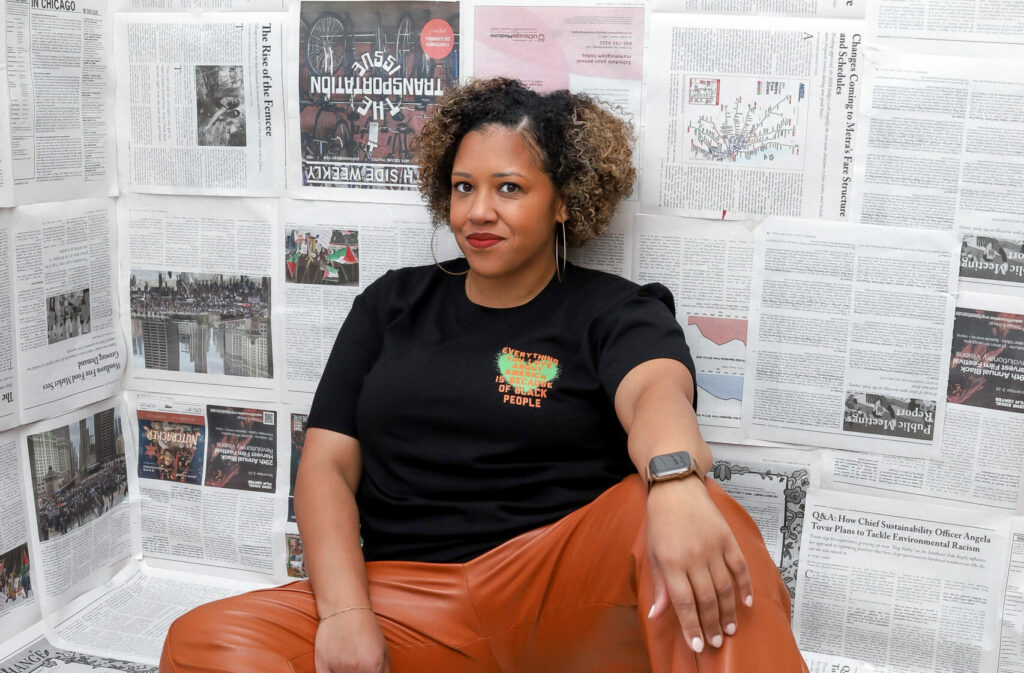
I got a two-part question for you: What did you learn in school about Black history and who are some of your favorite Black Chicago historical figures?
I learned a lot in school about Black history, actually, because my CPS school I went to Parker Community Academy in Englewood. We made Black History Month a really big thing. I don’t think I did not know how many of the people I liked were from Chicago and how their stories were tied to Chicago. I was telling a friend how I had a period where I was just totally obsessed with Phyllis Wheatley. I was like: “She is a writer and a poet and I am smart and a writer and a poet. I’m going to be just like Phyllis Wheatley,” and I just don’t know how many six-year-olds go around telling people that they’re gonna be like Phyllis Wheatley, but I did. And then when I was like seven or so, I was obsessed with Sojourner Truth and I would go around reciting “Ain’t I a Woman?” to people all the time. But I just did not have [any] idea how many of these stories originated in Chicago. As a journalist, I love Ida B. Wells, and I admire her and she’s my hero. I am fascinated by Jean Baptiste Point du Sable; I wish we knew more about him. I feel like there’s just not enough. As a child, I was fascinated by Gwendolyn Brooks and I still am. I used to read a lot of her poetry and I still love it so much.
The White Sox fitted cap is often an identifier for South Siders. Why was it important for you to include the branding’s major contribution to fashion and hip-hop in the book?
Looking at sports as culture, when we talk about the White Sox and the White Sox hat, Black people really made that popular. That’s fashion; we made that hat popular. We made it popular for some reasons, but that is specific. So, it’s when you think about it being for everyone and everyone loving it, and being a part of a culture and the city, and leaving a big imprint on us as a society is kind of how I wanted to view it.
In the book, you talk a lot about the importance of style, brands, and fashion for Black women. You mentioned your mom, and I see your Instagram stories; you like to show out. Explain why it was important to describe fashion for Black women in the way you did.
I think because fashion is subjective in that way, right? So you know, for me, maybe when some new [Air] Jordans is fashion in a way that maybe for another woman it’s not. There are certain things like my hair being done. My definition of “done” might be different than somebody else’s definition of “done” but my hair needs to be done right. So it’s, like, certain things as Black women are very important in how we are put together, and we know that for some of those reasons behind it, different prejudices and discrimination have taught us that we must be “presentable.” But I think that we have also transformed a lot of that thinking into it being a sense of pride and how we walk outside and present ourselves to the world.
The last thing I want to talk about is the aspect of culture in Black Chicago, whereas I feel like you can find out a lot about someone by where they went to high school, where they go to church, what fraternity or sorority they’re in. Can you speak to that aspect of how these questions are an icebreaker for Black Chicagoans who don’t know each other?
If you went to a certain high school, now I can make, I guess, assumptions about maybe the neighborhoods you went to, or maybe that you lived in or if you didn’t live in that neighborhood. Maybe you were bussed in, you know? So you can make a lot of guesses. I probably know some people who know you. And I probably know a little bit about where you grew up because high school is such an important time in your life that grows you up really fast. And so you know that neighborhood that you go to high school and it’s so important, and then where you go to church, like if you went to maybe a more historic church, right? Every Black Chicagoan is two degrees away from each other. We all are grandkids of the Great Migration, or kids, or great-grandkids, and we all have these very similar things that happened to us. And so when we ask certain questions, it’s just us connecting better and better, you know?
We Are The Culture: Black Chicago’s Influence on Everything, by Arionne Nettles. 224 pages. Lawrence Hill Books, 2024. $28.99 Hardcover.
Evan F. Moore is an award-winning writer, author, DePaul University journalism adjunct instructor, and a third-generation South Shore homeowner.

